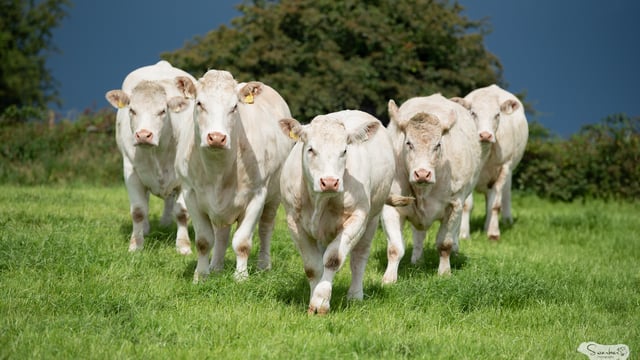Animal-sourced food has 'critical role in society' - research
Newly published research has outlined what Teagasc has called the "critical role in society" played by animal-sourced food.
The research was published on Saturday (April 15) in the peer-reviewed scientific journal Animal Frontiers, one of the most cited journals internationally in the fields of agriculture, dairy and animal science.
The most recent edition of the journal was guest edited and authored by several scientists who are among the nearly 1,000 who have signed the 'The Dublin Declaration of Scientists on the Societal Role of Meat'.
This declaration, which was launched last week, as well as the research published in Animal Frontiers, are a result of the October 2022 International Summit on the Societal Role of Meat, which was hosted by Teagasc in Dublin.
One of the featured articles published in the latest edition of Animal Frontiers stated that aspects of human anatomy, digestion and metabolism indicate "evolutionary reliance on, and compatibility with, substantial meat intake".
"Implications of a disconnect from evolutionary dietary patterns may contribute to today's burden of disease, increasing the risk for both nutrient deficiencies and chronic disease," it added.
The article highlights that the protein and nutrients in meat are not easily obtained from meat-free diets, and are often already below healthy levels in various parts of the world.
The authors also outlined that meat delivers most of the global vitamin B12 intake and "plays a substantial role" in the supply of other B vitamins, retinol, long-chain omega-3 fatty acids, several minerals in bioavailable forms (such as iron or zinc), and a number of bioactive compounds with "health-improving potential".
"Efforts to lower global meat intake for environment or other reasons, beyond a critical threshold, may hinder progress towards reducing undernutrition and the effects this has on both physical and cognitive outcomes," the article said.
It added: "This is particularly a concern for populations with increased needs and in regions where current meat intake levels are low, which is not only pertinent for the 'Global South' [economically underdeveloped regions] but also of relevance in high-income countries."
Commenting on the publication of the research, Declan Troy, assistant director of research at Teagasc, said: "Livestock farming supports the livelihoods of about one in six people on the planet. It supplies food, nutrition [and] income to hundreds of millions of people.
"This publication shows that deploying scientifically sound practices in animal agriculture is key to succeeding in the face of global health, climate, and development challenges."
The research was also welcomed by Prof. Alice Stanton, director of human health at Devenish Nutrition and a member of the Royal College of Surgeons in Ireland.
She said that the new research contradicts a major 2019 study titled Global Burden of Disease Risk Factors Report, which linked meat consumption to negative health outcomes. Prof. Stanton called for that 2019 study to be retracted.
She remarked: "Removing fresh meat and dairy from diets would harm human health. Women, children, the elderly, and those with low income would be particularly negatively impacted."
One of the signatories of the Dublin Declaration, Dr. Adegbola Adesogan from the University of Florida in the US said: "Animal-sourced foods are superior to plant-sourced foods at simultaneously supplying several bioavailable micronutrients and high-quality macronutrients that are critical for growth and cognitive development.
"Dietary recommendations to eliminate animal-source foods from diets ignore their importance, particularly the great need for these foods in diets of the undernourished Global South."
Another signatory of the Dublin Declaration, Dr. Wilhelm Windisch from the Technical University of Munich, commented on the role of meat in the environment.
"Farmed and herded animals maintain a circular flow of materials in agriculture, by using and upcycling large amounts of material humans cannot eat, turning them into high-quality, nutrient-dense food," he said.
Dr. Windisch added: "One-size-fits-all agendas, such as drastic reductions of livestock numbers, could incur environmental and nutritional consequences on a massive scale."





